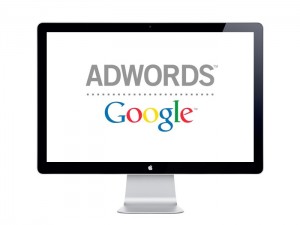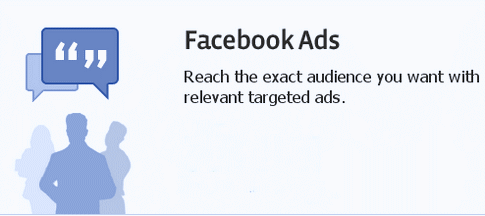
Take a look around you, and try to find someone who is not on some kind of Internet gadget. Smartphones, tablets, laptops, and netbooks are a staple in everyone’s daily to-bring list. When one of the big headlines on the news is an experiment on how one can last a day without a cellphone, you’ll know that such technology is a fact of life as integral to us as eating and drinking now.
This is why Internet-based advertising rose from its simple past into the requisite marketing tool it is today. From its use in sites like Multiply and MySpace, it’s become by itself a booming industry used everywhere. As a result, Internet marketers need to do more to catch audience attention with all the competition, to stand up above the rest even at a cost. This is where Google’s AdWords, the “pay-per-click:” online marketing tool, came in. Although you will be targeted adverts that cater to your interests, there may be times where this is the opposite, where they could be irrelevant or inappropriate. If you find this does happen, why not think about using an adblocker for Chrome, which will get rid of any irrelevant ads and popup banners.
A powerful tool, Google AdWords works by putting up premium ad space on its search engine pages for bidding. Users bid their desired rates on the keywords and key phrases on whose search pages they want to be featured on, and the highest bidder gets to place an ad that appears at the top of the search engine page in an eye-catching banner. Every time a potential customer clicks on the ad, Google charges the user with the agreed-upon rate.
PPCnerd's collection of Google Ads automation scripts shows just how far Google has advanced in this arena, as scripts let you control just about any part of your advertising campaign in an automated process.
Google was uncontested for a while in this area, but Facebook, the social media giant that recently celebrated getting 1 billion users on its site, was not about to lose out. Since its inception, Facebook has become more than just a social media site—it’s become a virtual shopping mall. Side by side with friends’ profiles are company fan pages. And just a physical shopping trip, people within the same network recommend, show off, and “like” pages and posts together. So Facebook took this one step further and introduced its own version of pay per click marketing. While a typical fan page post can only be viewed by the “fans” of the page, Promoted Posts allows you to extend that network and making the post visible even to your fans’ friends. The Promote option also lets you choose your desired rate while showing the estimated number of people the post will reach, and the duration of the promotion. Facebook made this option available via mobile, so it’s always a ready option for every marketer. For a more generalized ad campaign that’s not based on a fan page’s existing fans, Facebook introduced Sponsored Posts, which appear on the right hand side of a Facebook page. There is also a bidding process involved in order to get “Sponsored”, but it is based on targeting demographics rather than keywords. With the ability to target posts, you can tailor campaigns specifically to a niche group. If you do use facebook for your marketing, it might be a good idea to take advantage of facebook analytics tools.
Google vs. Facebook. How do these two compare?
Here are five points we’re going to look at to determine the pay-per-click marketing victor:
1. Conversion.This is the main goal of every business, and the biggest determinant of a marketing campaign’s success—How the ad converts into sales. Now, Google’s advantage in this area is that potential customers are like male shoppers—they know exactly what they’re looking for and are heading straight for it. These guys are already ready to spend, and when they do a search, they’re going for the nearest person who can give them that. If your ad is in a great place, the chances of making the sale are high because you can count on your link being noticed. On Facebook, users aren’t looking for something specific—they’re like female shoppers, just browsing through. While there’s a big chance that a Promoted Post will get noticed because of users’ tendencies to check out what their friends and family have liked, the chances of conversion are lower because they’re not always willing to transact.
2. Content Marketing Strategy. Advertising on Google is like preaching to the choir. The goal of your ad is to show users that there’s no need to look further. Therefore, your focus is on the strength of your product. You want to prove that it is better than everything else out there, and why its worth its placing. Your ad aims to inform. On Facebook, your goal is to sell browsers on the idea of your product first. Your advertising is based on push marketing—you want to convince users why your product is a good idea before you sell them on your product. Advertising on Facebook is harder, but it does prove how well you can market something.
 To be able to convert, your ad needs to be seen first. Google, as the leading search engine in the world today, boasts of getting at least a billion searches each day, while Facebook has its billion users. This means that theoretically, they both give you the same opportunity to reach an enormous group. However, Facebook has a disadvantage here—to be able to view an ad, the potential customer must first be a member of Facebook, and must have access to Facebook. Most of your customers would likely be Facebook members, but there is that small percentage that either may not have an account or have disabled it for some reason. Aside from the possibility of losing out on some potential customers, Facebook is limited in that it is sometimes blocked from workplaces, as many social media sites often are, due to their ability to distract workers. This keeps you from the possibility of hooking that bored office secretary looking to make an impulse buy. Google, on the other hand, is not hampered by these things—a user need not have a Google account to be able to do a search. And as a search engine, it is less likely to get blocked. This means that your ad is always available to everyone.
To be able to convert, your ad needs to be seen first. Google, as the leading search engine in the world today, boasts of getting at least a billion searches each day, while Facebook has its billion users. This means that theoretically, they both give you the same opportunity to reach an enormous group. However, Facebook has a disadvantage here—to be able to view an ad, the potential customer must first be a member of Facebook, and must have access to Facebook. Most of your customers would likely be Facebook members, but there is that small percentage that either may not have an account or have disabled it for some reason. Aside from the possibility of losing out on some potential customers, Facebook is limited in that it is sometimes blocked from workplaces, as many social media sites often are, due to their ability to distract workers. This keeps you from the possibility of hooking that bored office secretary looking to make an impulse buy. Google, on the other hand, is not hampered by these things—a user need not have a Google account to be able to do a search. And as a search engine, it is less likely to get blocked. This means that your ad is always available to everyone.
4. Price. With availability, however, comes cost. Having to bid and compete for good ad locations on Google means that costs per click for every ad can get very expensive, and you don’t have a frame of reference that can tell you if your bid is already above and beyond the normal range. In Facebook’s case, its edge is in its Suggested Bids Feature. Whenever you bid for a Sponsored Post, a Suggested Bid range gives you the lowdown on your competition by displaying the bid range, and even giving you the option of having Facebook set your bid. By letting you know what your competition is doing, it can save you a lot of money and even help you gauge how you can maximize your bid.
5. Conversion Tracking Ease. While Facebook helps you save in bidding, it doesn’t help you track the success of your ad once it’s up. In order to track conversions on Facebook, you need to look to third-party applications, which can require payment. Google, however, offers this service for free. Google AdWords Conversion Tracking gives you information on how your keywords and ads are doing based on a tracking code that’s linked to a specific action word, like “sign up” or “buy”, depending on how you’ve set up the tool. It’s a simple process that can help you determine how you should tailor future ads. And though AdWords Conversion Tracking only maintains data for 30 days, you can supplement it with Google Analytics Custom Variables, which, with a few additional steps, enables you to track conversions for up to 6 months based on the variables you’ve defined in Google Analytics.
It seems that Google gets the win following this analysis, but remember, both these giants work on different mindsets. While Google is all about instant conversions and catering to a market that already knows what it wants, Facebook is about selling ideas to a group that doesn’t know yet what it wants, but can be enlightened easily. It’s all based on what you’re doing. So which pay per click marketer works best? You decide.
Author bio:
+Tony Evans is a freelance web designer and a mother of a beautiful daughter, Athena. She has a passion in Aerobics and cooking healthy recipes.

I’d say that earning a top spot in the organic search engine results is far better than both. 70% of the results people click in search engines are in the organic section. Use SEO tools to get there, but be careful which ones you use, many people out there claim to be SEO “experts” when they will not help you at all.
As an advertiser, one of the coolest features now availabe on PPC ads to mobile devices is the Click-to-Call feature. Now you can generate inbound lead calls to your business and all prospects have to do is click one button on their phone when they see your ad. Once you’ve got it setup, all you have to do is optimize your ads to generate increasingly more calls. You can actually even track calls, but that’s technical. If you’re interested in that, I recommend you call Simon who will at least get you a free audit on your PPC campaign to help you improve results. His number is 302-401-4478.